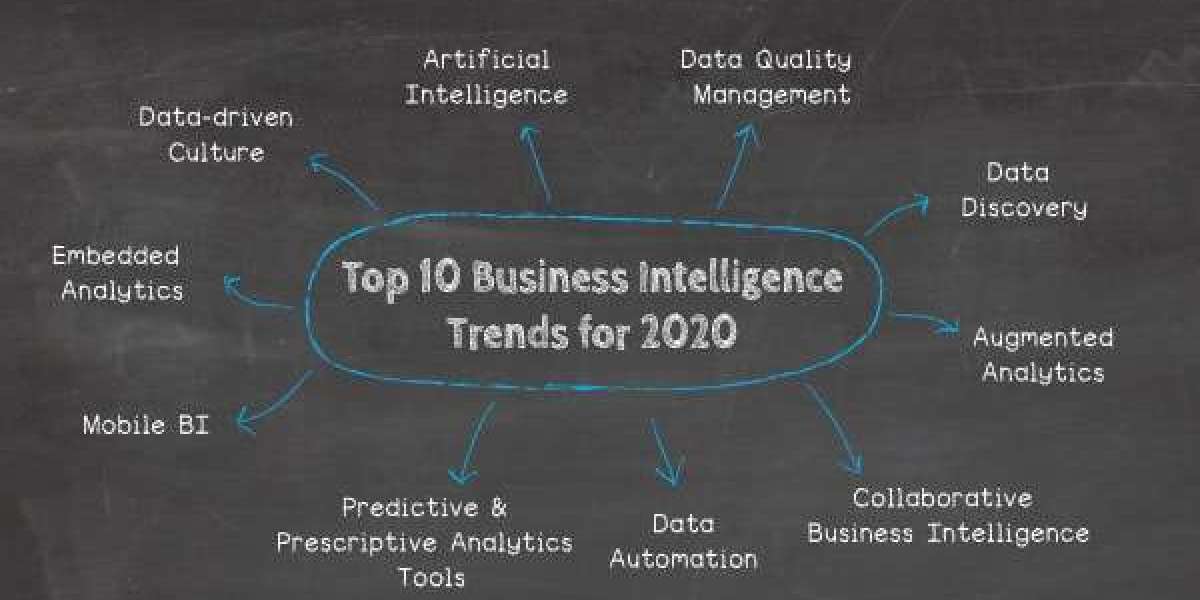Data analytics has become an integral part of modern business strategies, offering invaluable insights that drive decision-making and foster growth. As we step into 2020, it's essential for businesses to reassess their approach to data analytics to stay competitive in a rapidly evolving landscape.
Data Analytics
Data analytics involves the process of examining large datasets to uncover patterns, correlations, and trends. It enables businesses to extract actionable insights from their data, facilitating informed decision-making and strategic planning. In today's data-driven world, businesses that harness the power of analytics gain a significant competitive advantage.
Evolution of Data Analytics
The journey of data analytics traces back to the early days of computing when businesses started collecting and analyzing data manually. However, with the advent of technology, especially the rise of the internet and digitalization, the field of data analytics has witnessed a profound transformation. Today, businesses have access to advanced analytics tools and techniques that enable them to analyze vast amounts of data in real-time.
Current State of Data Analytics in 2020
In 2020, data analytics has reached new heights, driven by advancements in technologies such as artificial intelligence (AI), machine learning, and big data processing. Businesses are increasingly relying on data analytics to gain insights into customer behavior, optimize operations, and identify new market opportunities. Real-time analytics, predictive modeling, and data visualization are among the key trends shaping the current landscape.
Benefits of Data Analytics for Businesses
The benefits of data analytics for businesses are manifold. Firstly, it enables companies to make data-driven decisions, reducing reliance on intuition and guesswork. Secondly, data analytics helps improve customer experience by personalizing products and services based on individual preferences and behavior. Lastly, businesses that effectively utilize data analytics gain a competitive edge by identifying trends and opportunities ahead of their competitors.
Challenges in Implementing Data Analytics
Despite its immense potential, implementing data analytics poses several challenges for businesses. One major concern is data privacy and security, especially in light of stricter regulations such as the GDPR. Additionally, there is a shortage of skilled professionals capable of handling complex analytics tools and techniques. Moreover, integrating data analytics into existing systems and processes can be complex and time-consuming.
Strategies for Businesses to Leverage Data Analytics
To leverage the benefits of data analytics, businesses must adopt a strategic approach. Firstly, investing in training and development programs can help upskill existing employees and bridge the skills gap. Secondly, establishing clear goals and key performance indicators (KPIs) ensures that data analytics efforts align with business objectives. Lastly, utilizing advanced analytics tools and technologies enables businesses to extract actionable insights from their data effectively.
Case Studies of Successful Data Analytics Implementation
Several businesses across various industries have successfully implemented data analytics to drive growth and innovation. For instance, retail giant Amazon utilizes data analytics to personalize product recommendations for its customers, enhancing the shopping experience. Similarly, healthcare organizations leverage predictive analytics to identify patients at risk of developing chronic diseases, enabling early intervention and preventive care.
Future Trends in Data Analytics
Looking ahead, the future of data analytics promises even greater advancements. With the integration of AI and machine learning, businesses can expect more accurate predictions and deeper insights from their data. Moreover, predictive analytics will play a crucial role in anticipating market trends and consumer behavior, enabling proactive decision-making.
Conclusion
In conclusion, data analytics presents immense opportunities for businesses in 2020 and beyond. By embracing a data-driven culture and investing in the right tools and technologies, companies can gain a competitive advantage and drive innovation. However, it's essential to address the challenges associated with data analytics implementation and continuously adapt to emerging trends to stay ahead in a rapidly evolving landscape.









